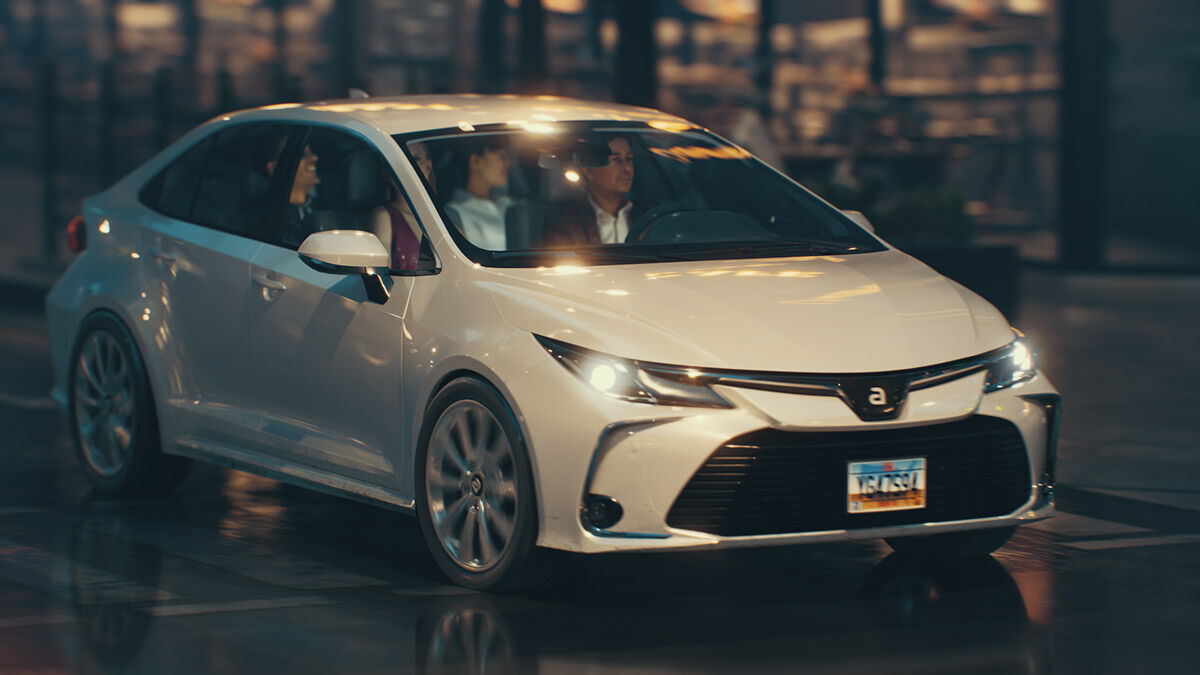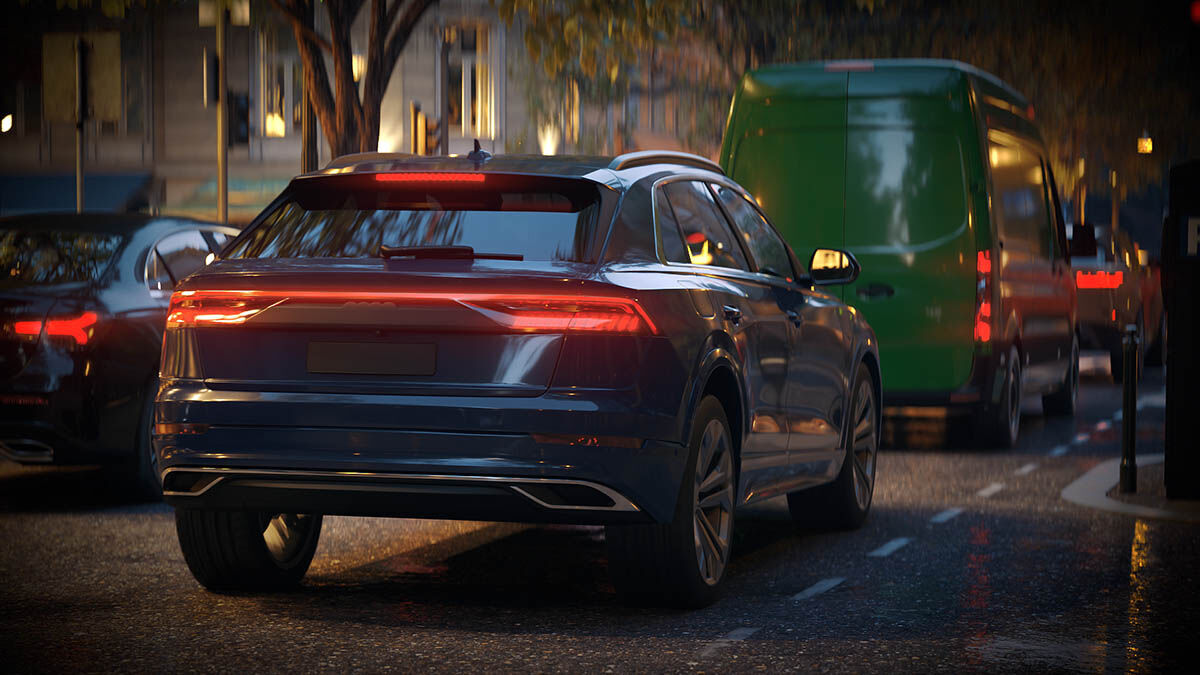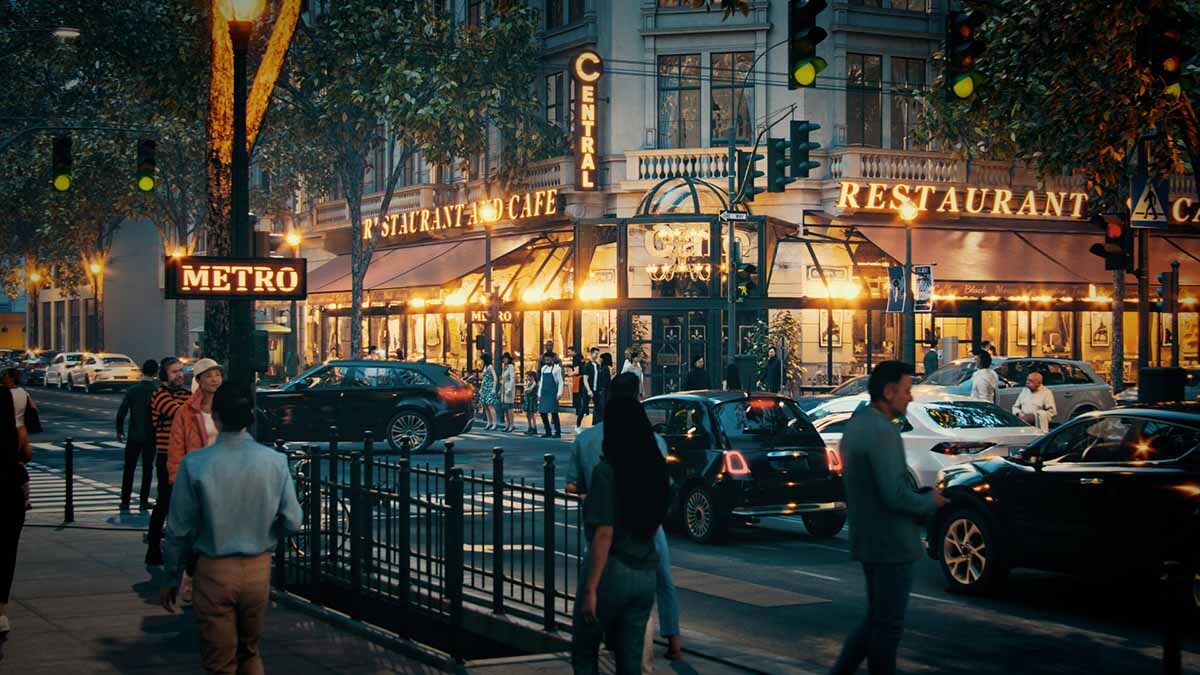What’s New in Chaos Anima 6.2: Realistic Traffic, Tag-Based Crowds & More
POSTED 7th OF Oct, 2025, Posted by Summer
POSTED 7th OF Oct, 2025, Posted by Summer
Welcome to the next era of architectural animation, one where your streets breathe and your crowds live. With Chaos Anima 6.2, the barrier between static renders and immersive motion is shrinking fast. This update isn’t just incremental: it introduces fully crewed vehicles, smarter crowd behavior, performance upgrades, and more.
In this comprehensive guide, you’ll learn:
By the end, you’ll see why this is the version you want and be ready to click through to our product page to get your hands on it.
If you’re building architectural visualizations, walkthroughs, or cinematic environment renders, lifelike movement is no longer optional; it's essential. Clients expect realism: moving people, working streets, and believable interactions.
Chaos Anima 6.2 turns that expectation into reality by:
Because it’s built by Chaos, it integrates tightly with V-Ray, Corona, 3ds Max, Unreal, and more, meaning it fits inside your existing pipelines rather than forcing you to reinvent them.
Let’s break down each major enhancement, how it impacts your workflow, and why it’s a real upgrade, not just marketing fluff.
No more empty shells. All vehicles now include drivers and passengers automatically. You can control:
This small addition makes a big visual difference. Suddenly your streets feel inhabited rather than staged.

Vehicles now behave more like real cars:
Combined with improved vehicle motion (suspension, acceleration, and terrain response), your traffic flows with cinematic realism.

Earlier versions forced your crowd movement along fixed paths. Version 6.2 empowers you:
This gives you crowd motion that feels alive and reactive, not pre-scripted.
More options = fewer repeats = higher perceived realism. With 6.2, you get:
Nobody likes waiting. 6.2 addresses bottlenecks:
These translate into more iteration, less downtime, and a better studio throughput.
Chaos has cleaned up the backend:
This matters if you're working in a studio or across multiple machines/users' license rollout is smoother, and updates are easier.

To fully appreciate 6.2, let’s see it in contrast to what came before:
| Version | What You Got | What You Didn’t Have / Pain Points | 6.2 Improvement |
| Anima 5 / earlier | Crowd simulation, character movement | No built-in traffic simulation or crewed vehicles | 6.2 adds full traffic and vehicles with drivers |
| Anima 6.0 | Traffic simulation (Vroom) with vehicle routing, basic motion | No blinking/brake lights, no passengers, limited crowd intelligence | 6.2 fills those realism gaps |
| Anima 6.1 (intermediate) | Some UI/workflow refinements | Still lacking advanced crowd tagging, deploy scripting, and certain performance optimizations | 6.2 is incremental but meaningful |
6.0 gave you the skeleton. 6.2 gives it flesh, movement, and expression.
Before placing your order, here’s what you need to know about supported environments and integration.
1. 3ds Max, Cinema 4D, Unreal Engine are fully supported.
2. Integrates with popular render engines: V-Ray, Corona, Chaos Vantage, and others via shading/material compatibility.
3. Note: Maya support is deprecated. Some legacy versions might still work, but it’s no longer a focus.
1. If you already subscribe to the ArchViz Collection (V-Ray or Corona edition), Anima is included; you don’t need to purchase it separately.
2. Otherwise, you can purchase Anima as a standalone license (often via subscription/floating license model).
3. Chaos now uses a centralized license server and My Chaos for seat/license management.
From the official documentation:
1. Windows OS (64-bit)
2. Minimum RAM: ~ 8 GB (recommended: 16–32 GB or more for heavier scenes)
3. GPU support: DirectX / OpenGL capable card
4. Disk space: 10+ GB for assets
5. For complex crowd and traffic scenes, better CPUs and GPU cores help
Always test on smaller scenes before scaling up.
Putting features into practice helps underscore their value. Here are a few ways studios are already leveraging 6.2:
1. Urban architectural walkthroughs: streets now populate with vehicles that stop, turn, and carry passengers, enhancing realism.
2. Masterplan animations: using tag-based crowds and density controls, plazas, sidewalks, and roads fill at appropriate times of day.
3. Mixed DCC pipelines: export the crowd/traffic animation from Anima into Unreal or 3ds Max, then render via V-Ray or Vantage seamlessly.
4. Large-scale scenes: thanks to performance improvements, even heavy cityscapes with multiple intersections and crowd clusters can remain responsive.
These are not theoretical; they’re what studios are doing now with 6.2.
For example, in Chaos’s own showcase, they emphasize: "No more empty streets, no more empty cars" in Anima 6.2.
Here’s why Motion Media should be your go-to instead:
1. Local support & faster response
You get real-time help in your time zone (or region) for license activation, troubleshooting, seat changes, and upgrades.
2. Better licensing guidance & package selection
We help you pick the optimal setup: standalone vs. bundle, number of seats, and renewal plans saving you from overbuying or under-licensing.
3. Quicker deployment & onboarding
We prepackage license files, script pipelines, install guides, and user documentation so your team can start immediately.
4. Reseller pricing & bundling deals
Because we’re an authorized reseller, we can offer local incentives, volume discounts, and promotional bundles (example with V-Ray, Corona).
5. Seamless upgrade path
When Anima 6.3 or 7.0 arrives, Motion Media ensures your seats transfer smoothly and you don’t face downtime.
6. Trust & legitimacy
Licensing from a verified reseller mitigates risk of invalid keys, support denial, or compliance issues.
You get the same product, but with full backing, validation, and a smoother buy-to-deploy path.
Q: I already own a V-Ray/Corona ArchViz Collection; do I need to pay extra?
Nope. Anima is included within those collections. As long as you maintain your active subscription, you already have access to 6.2.
Q: What if I’m on an older perpetual Anima license?
You may need to convert or upgrade to a subscription/floating license. Contact us, and we’ll guide your transition without losing license days.
Q: Does it support FBX / .vrscene export?
Yes. Anima is designed to integrate with common DCC and rendering pipelines via FBX, .vrscene, and other interchange formats.
Q: What happens when a new version (e.g., 6.3) arrives? Will my license break?
Not usually. We at Motion Media manage your license rollover so upgrades are smooth. We provide fallback plans and version backups if needed.
Q: How many seats do I need?
It depends on your team size and concurrency. We can audit your usage pattern and suggest an optimum number.
Anima 6.2 is more than an update; it’s a leap forward. With crewed vehicles, context-aware crowds, smarter motion, and performance upgrades, this version adds the level of realism your clients expect no more sterile streets or robotic crowds.
But the product alone isn’t enough. How and where you buy it matters, from licensing compliance to support, deployment ease, and upgrade paths. That’s why Motion Media is the strategic choice: you get the same powerful tool, wrapped in dependable service, guidance, and legitimacy.
Click here to buy Chaos Anima 6.2 via Motion Media
We’ll help you pick the right plan, deploy it across your studio, and ensure you get full value from this transformative update. Let’s bring your scenes to life together.

